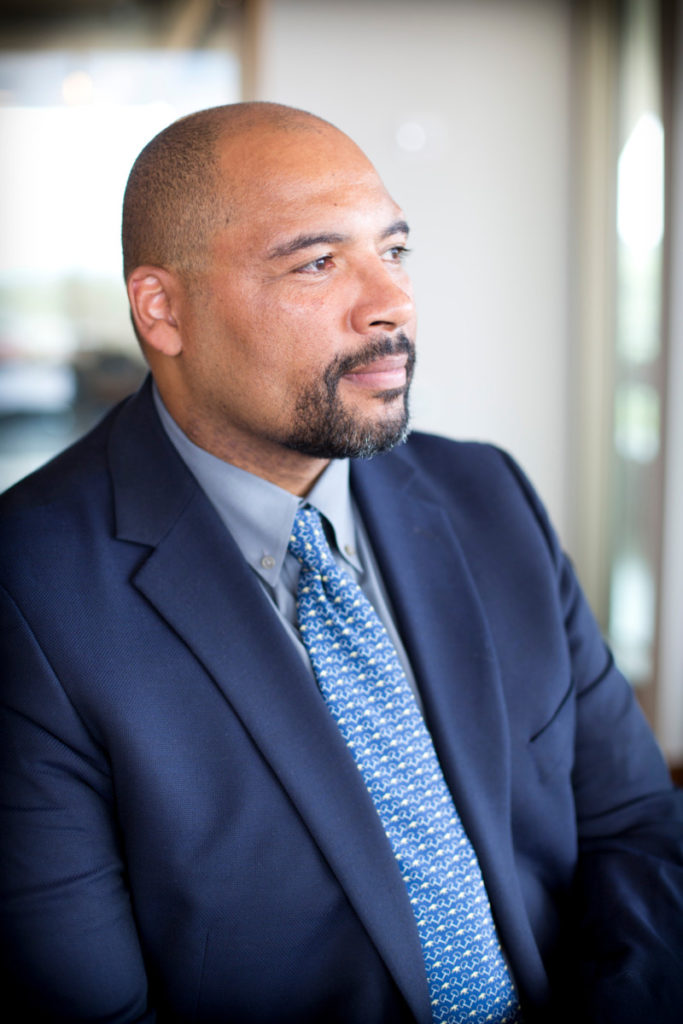The Emory Libraries, campus, and community partners have launched a series of celebrations to honor the legacy of our colleague and friend, Dr. Pellom McDaniels III 06G 07PhD. He was a Renaissance man whose hard work, discipline, and talent are reflected in the roles and titles he held throughout his lifetime. He was an accomplished scholar, an author, an artist, a beloved professor, an Emory curator and a professional football player. And he was a valued personal friend to a tremendous cross-section of the Emory community.
GIVING OPPORTUNITIES
Pellom McDaniels III Research Award Endowment in African American Collections Engage.emory.edu/McDaniels This fund will support awards for Emory students, faculty and staff, and visiting scholars to conduct research and undertake creative projects utilizing the Rose Library’s collections documenting African American history and culture. The work that results from these awards will continue Pellom’s efforts to document and celebrate African American lives, history and expression.
STORIES
“Lifting Every Voice: The Inspiration and Impact of Pellom McDaniels III”
PROGRAMMING
September 9, 2020, 2:00 PM Remembrance film screening, Flash Here and There Like Falling Stars: The Life and Work of Dr. Pellom McDaniels III and Rosemary Magee Creativity Conversation featuring moderator Jennifer King and participants Randall Burkett, Clint Fluker, and Dwight Andrews. Flash Here and There Like Falling Stars: The Life and Work of Dr. Pellom McDaniels III The film Flash Here and There Like Falling Stars explores the life work of Dr. Pellom McDaniels III, whose capacious vision, integrity, activism, generosity, and fierce intellect touched thousands of lives. Dr. McDaniels, who passed suddenly in April 2020, served as the curator of African American collections at the Stuart A. Rose Manuscript, Archives, and Rare Book Library at Emory University, where he also earned his master’s and PhD. Dr. McDaniels was also an activist, scholar, author, artist, beloved professor, and former professional football player. His community outreach efforts brought the very contents of the archive he curated into the hands of children and their families, creating a living history. Speaking to this, Dr. McDaniels said, “It’s one thing for us to make research materials available for our students and faculty and outside researchers. It’s another thing to interpret documents, photographs, and ephemera in ways that inform a public that’s hungry for these kinds of experiences.” Flash Here and There Like Falling Stars bears testament, in Dr. McDaniels’ own words, to his legacy and the indelible mark he made on this world.
Fall, 2020
Lift Every Voice series: A year-long project, Lift Every Voice 2020 began with Pellom’s idea that Reconstruction was “a time of great possibility” for African Americans, and its primary objective is to illuminate the rich history of Reconstruction to the public in order to deepen the public’s understanding of how African Americans envisioned citizenship for themselves and how they worked to bring these dreams to life. Events include a virtual seminar series in partnership with the Emory University Fox Center for Humanistic Inquiry, the James Weldon Johnson Institute for the Study of Race and Difference, and the Emory Office for Race and Cultural Engagement and a public reading of the United States Constitution
February 2021
In celebration of Pellom McDaniels’ birthday (Feb. 21) and Black History Month, a special event will be organized to include the launch of an online exhibit dedicated to Pellom McDaniels’ life and work.
Spring/Summer 2021
Remembrance as Resistance: Preserving Black Narratives The Center for Creativity and Arts at Emory University and visiting artist Charmaine Minniefield will honor Pellom McDaniels with a Ring Shout and Praise House on the Emory campus. The Ring Shout is a traditional African-American worship and gathering practice whose origins in West African ritual and ceremony predate slavery From its roots in West Africa, the Ring Shout was reborn during enslavement in the West in resistance to laws which prohibited those enslaved from gathering, except for worship, and forbid any form of cultural expression not in service to the enslavers, including drumming. These laws were imposed in an effort to systematically dismantle communication, and ultimately the community. In response, those enslaved created Praise Houses—small usually wooden structures used for worship throughout the Southeast. As an act of resistance, congregants would gather in a circle to stomp or shout (full body rhythmic movement) upon the wooden floors, ultimately creating a communal drum—secretly preserving their cultural rituals and collective prayers and traditions. These small hidden worship spaces were the first Black churches in the Western world. The Praise House will be the site of multimedia projection of images from the Rose Library’s Robert Langmuir Photographic Archive of 12,000 photographs documenting African American life, and spanning the 1840s-1970. Through this project, Minniefield explores evidence of the Ring Shout’s survival in contemporary dance, music, and spoken word as a testament to the resilience of a people.

